‘My gun is ready’: Ukrainian football players, coaches drawn into the war with Russia
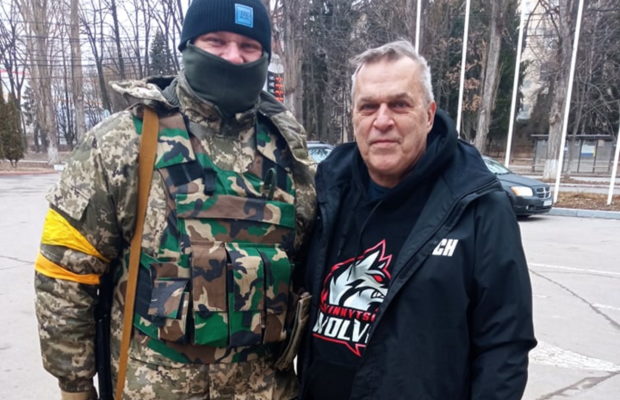
War and football. For many with no concept of conflict, they make fitting allegories. Men in armor clashing on a field of battle. The ultimate metaphor for violent masculinity.
For the hundreds of American football players currently on the ground in Ukraine, that comparison no longer feels appropriate.
Football is a joyous release, an escape from the troubles of daily life, and time spent among friends. Since Russian troops flooded across the border on February 24 to fulfill Vladimir Putin’s dream of a new Soviet Bloc, that has been impossible to come by.
More than 1.5 million refugees have fled Ukraine since the fighting began, leaving behind them atrocities that continue to shock the world. However, male citizens have been barred from leaving, required in the all-hands-on-deck fight that the country still finds itself in 18 days later. In an instant, almost every male player, coach or administrator in the Ukrainian League of American Football found themselves engaged in the war against Russia, one way or another.
Oleksandr Posunko was in the Ukranian capital when the invasion began, where he plays for the Kyiv Capitals. This time last year, the defensive back was preparing to submit his testing numbers for the CFL Global Combine with the hope of living out his pro football dream in North America. After escaping the shelling with his girlfriend and her family, he is now helping prepare a defense for the west of the country that he hopes they’ll never have to use.
“I was assigned to a military unit. If necessary, they will call me to the war,” he explained. “So far, I am helping the local community with territorial defense and volunteers. We make hedgehogs for tanks, we buy the necessary tools for military units, we supply food to refugees from eastern and central Ukraine.”
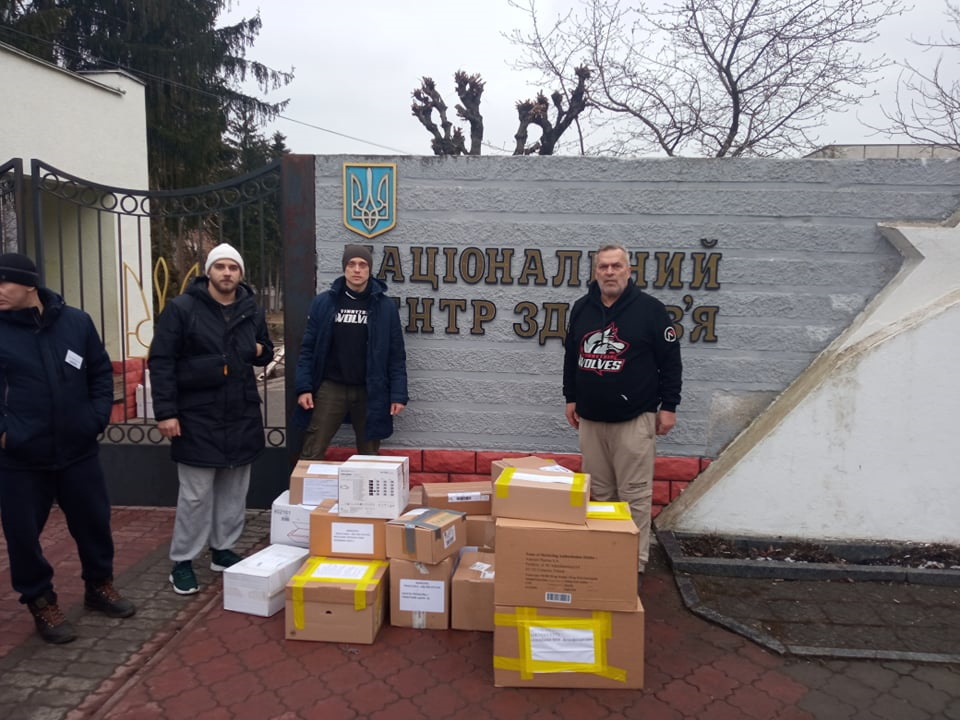
Dale Heffron and Vinnystia Wolves players delivering supplies
While every team has a handful of players already at the front, most are in a similar situation to Posunko. At a moment’s notice they could be sent into active combat but must fill vital auxiliary roles until then to support the war effort.
In the central Ukrainian city of Vinnystia, American Dale Heffron is doing his part. The 67-year-old head coach of the Vinnystia Wolves has made Ukraine his home and refused to leave with other ex-pats when the fighting began, choosing to face down the uncertainty alongside his players.
“I’m no f***ing hero,” he said in a phone interview this week, air raid sirens audible in the background. “I’m just an American who stuck by his team.”
He spends his days delivering food, medicine and supplies for the military and other essential services, leveraging resources shared by friends and supporters outside the country. The tasks he takes on includes everything from attempting to purchase bulletproof vests for his players in active combat to feeding zoo animals starving as the resources flood to the front.
“I’ve always lived by the philosophy that if you are kind to children and animals, I’m happy to meet you,” he said. “I’m watching Putin and a Russian Army that haven’t been kind to either.”
Working alongside Heffron are a number of other Wolves players and administrators. Club vice-president, youth coach and head of Ukrainian flag football Yevhen Khomyn builds barricades that might one day stem a Russian advance that inches closer every day. Defensive lineman Dmytro Radlinskyi serves as an emergency dentist for military personnel in addition to other duties, ensuring an abscessed tooth won’t be what takes an otherwise healthy soldier off the battlefield.
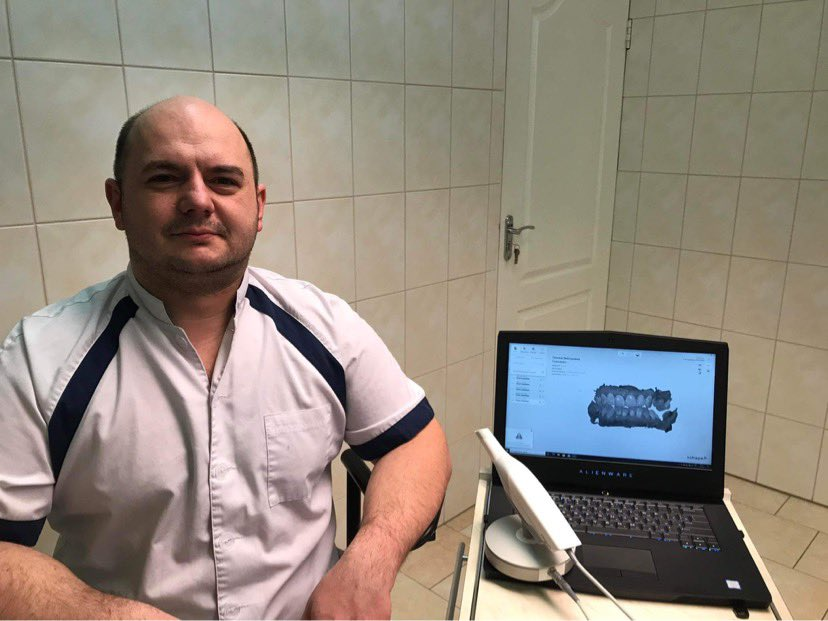
Dmytro Radlinskyi serves as an emergency dentist
Missile strikes have intensified in Vinnystia, with an attack on the airport claiming the lives of ten just a few days ago. There is increasing evidence that the Russians are comfortable hitting civilian targets, but Radlinskyi believes their city is better off than many.
“Right now, it’s more or less quiet. We have no military actions going here. It’s mostly on the north and on the east, but usually we have from three to six air raid alarms per day,” he said via phone Friday.
Quiet, of course, is a subjective assessment. There is no real peace in wartime.
“No one feels safe in Ukraine, even if you’re not near the front,” Khomyn remarked.
The Wolves‘ manager takes comfort in the fact that his family is safe in Romania, where they don’t have to worry about the missiles. He estimates that about 75 percent of player’s families have left the country just as his has and both he and Heffron have opened up spare rooms for refugees in transit through the city. The American coach shows little concern for his own safety, but fears for the plight of those he shelters.
“What scares me is the women and children coming through my home, who have no idea where they’re going to go and who can’t even bring themselves to tell their kids what has happened,” Heffron acknowledged.
Radlinskyi is among the few whose family hasn’t evacuated. It was his son who first got him into American football as an adult, both playing simultaneously for the Wolves at different age levels. He has not yet brought himself to send him and the rest of the family away, though it clearly troubles him.
“I have had such thoughts and have lots of friends outside of the country who would gladly help us and accommodate, but right now we are staying in place and not leaving,” Radlinskyi said.
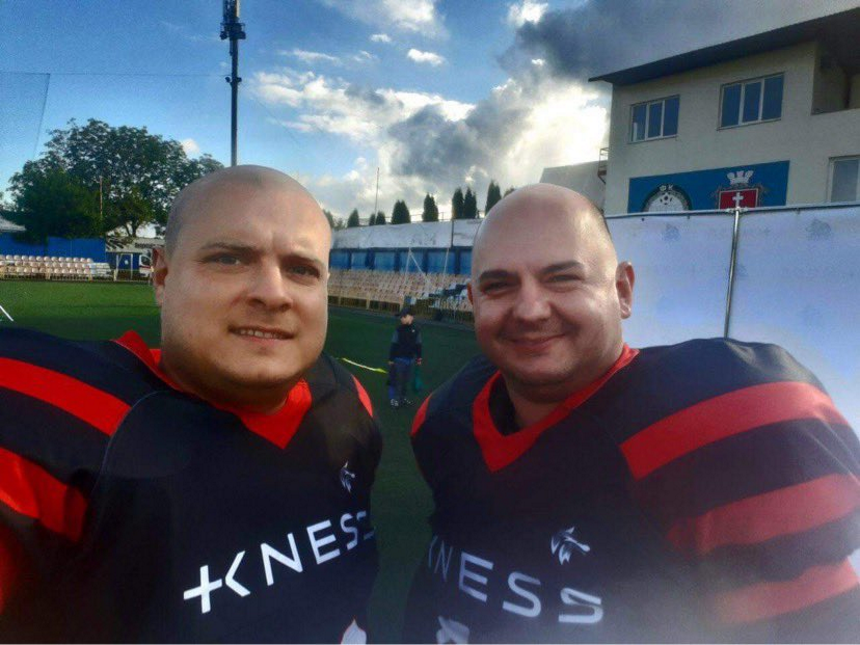
Dmytro Radlinskyi (R) and teammate now serving in Territorial Defense
These are the impossible choices thrust upon the average citizen in a time of war. Millions of Ukrainians have grappled with similar decisions, each life-altering and entirely foreign to most of us. Without living through it, the stress and turmoil is almost incomprehensible.
“I never thought that it would be such a huge invasion. I don’t how to [explain it]. I have some relatives that I don’t have connection with for almost 10 days and I really don’t know whether they’re alive or not. For people on the outside, it’s really hard to explain something like that,” Radlinskyi admitted, trailing off into a long silence.
Those on the ground have drawn strength from the support shown by people around the world for their stoic resistance to the Russian invasion. The international football community has overwhelming rallied behind the Ukrainian cause, showing solidarity on social media, issuing statements against Russia, and raising money. Every bit is appreciated, but from his post in the west Oleksandr Posunko notes that some prominent Russian teams continue to support the war on their own pages.
“This is very unfortunate, because civilians and children die from Russian bombs,” he said. “We have a large number of civilian deaths. I don’t understand how they can support this…”
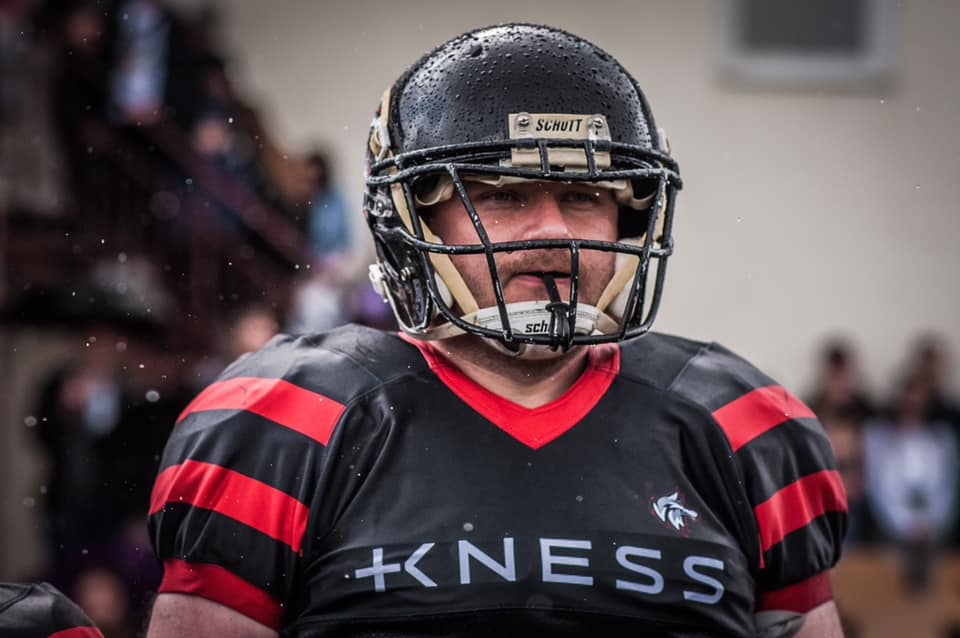
Wolves DT Anatolii Kovalchuk
He hopes that sanctions might be placed on Russian teams like this in the future, a sentiment echoed by Yevhen Khomyn. The sporting world has long been too lenient on Russia despite massive doping violations and that has given the government confidence that larger crimes, like attacking a sovereign nation, will also be chided with a slap on the wrist. While the international response has succeeded in hurting Russia economically and politically, he urges people everywhere to do more to support Ukraine.
“Go to meeting with our flags, send us products or medical supplies, take care of our refugees, boycott Russia and Russian goods,” he emphasized. “Ukraine should win and Russia should lose. If that doesn’t happen, Putin and war will come to your countries.”
“I think that people should know the truth in every corner of the Earth, in sports and in politics, in order to unite and defeat evil and lies,” Posunko echoed. “Children should not die from Putin’s tyrant bombs!”
The nation still needs more military support, but NATO has been cautious in it’s approach so as not to escalate the conflict or invite the threat of nuclear strikes. Coach Heffron believes his home country of the United States has not done nearly enough to stave off the threat posed by a power hungry Russian president.
“Nobody stopped Hitler either,” he warned. “Putin’s done it before in 2014 in Crimea and 2008 in Georgia.”
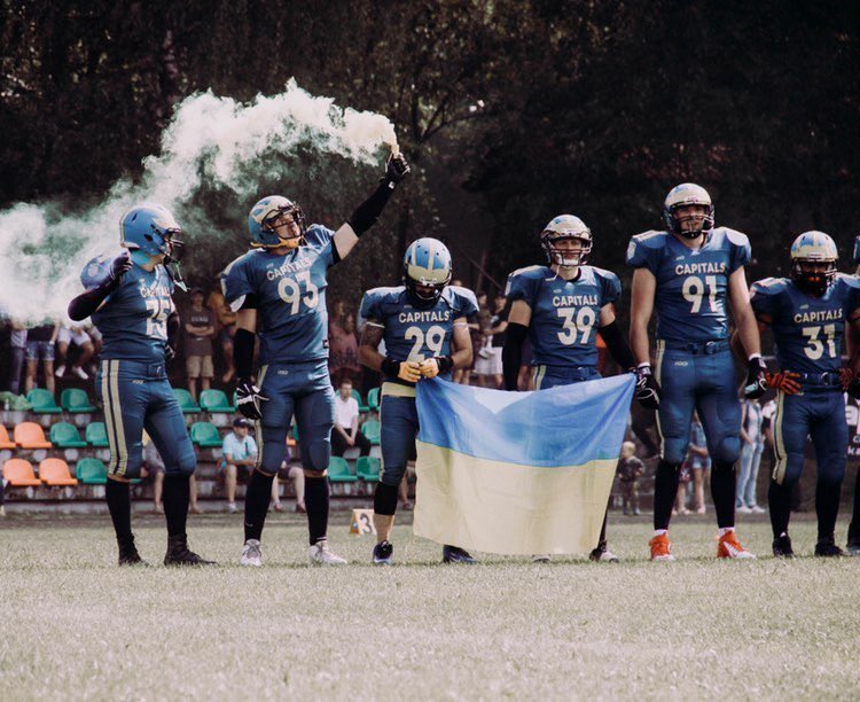
Kiev Capitals players including Oleksandr Posunko #39
Ukraine appears to be holding their own against the world power, despite being outnumbered and outmatched militarily. There is hope that the Russians can be repelled from the country entirely, but any sense of normalcy is a long ways away. The destruction of urban shelling and the staggering loss of life will make rebuilding as challenging as the conflict itself.
The same will be true of the nation’s football infrastructure. All players are holding out hope for the day when they might be able to return to the field, but it could be years before some teams are operational again. The hurdles to relaunch will be immense.
“Honestly, I cannot imagine… All our clubs’ budgets went to army needs, many youth players went abroad and a lot of them probably will stay there as refugees. Some teams will just disappear because sponsors will help to rebuild our country, but not sponsor football,” Khomyn predicted.
“We hope that after war there will be some foreign grants or programs that will help us to raise football from the ashes.”
Right now, that hope has to take a backseat to survival. While those interviewed have not yet fired a shot in this war, it may just be a matter of time. Young athletes will continue to fight and die in a senseless conflict while the world watches.
“People ask me, how are you doing?” Dmytro Radlinski said sadly. “I’m answering more often now that my gun is ready, ammo is ready.”